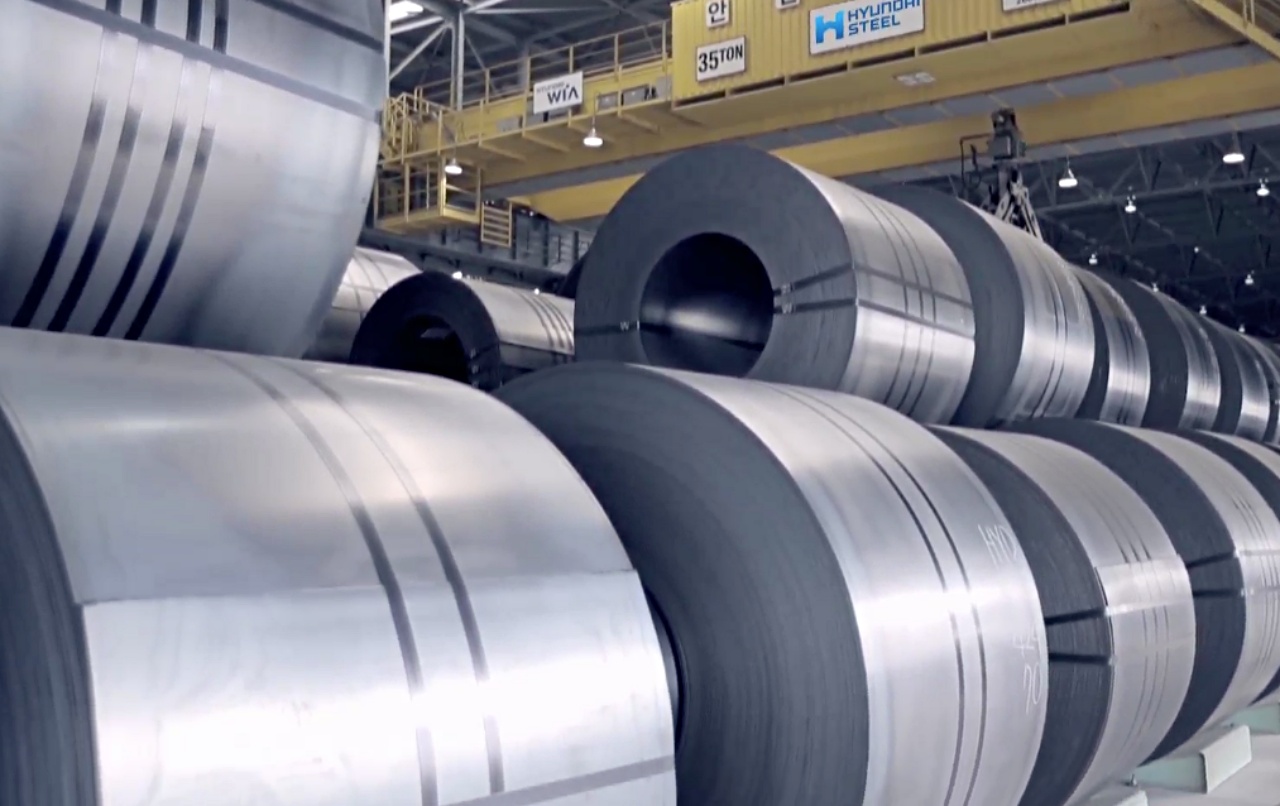Hyundai Steel is under pressure after announcing a $6 billion U.S. investment, part of Hyundai Motor Group's broader $21 billion pledge made at the White House in March. The move, seen as politically motivated amid evolving U.S. trade policy and tariffs, triggered a 21.2% drop in Hyundai Steel’s share price, outpacing declines in rival POSCO and the broader Korean market.
During a call with investors, Hyundai admitted the plan lacked detailed funding clarity but cited urgency due to fast-moving U.S. tariff developments and limited domestic political support following President Yoon Suk Yeol’s impeachment. Executives hoped the investment would bolster South Korea’s position in upcoming tariff talks with Washington.
However, concerns remain. Investors questioned the project's timing, its location in Louisiana—far from Hyundai Motor’s existing U.S. plants—and whether demand will justify capacity to supply steel for 1.8 million vehicles annually. The investment comes as Hyundai Steel struggles with weak domestic demand, labor strikes, and an influx of low-cost Chinese steel.
Hyundai plans to fund half the project through borrowing, while POSCO may participate as an equity partner. The company maintains the investment aligns with growing U.S. demand for high-quality, low-carbon steel and is independent of tariff negotiations. Still, trade experts suggest that better coordination with the South Korean government could have strengthened its leverage.
Hyundai Motor and Kia, heavily reliant on U.S. sales, have courted former President Trump, who recently imposed a 25% tariff on imported cars with no exemptions for Korean products. While Hyundai claims the investment targets sustainable steel, many workers in South Korea remain uneasy, fearing underinvestment in local operations as factories face shutdowns.
As talks with U.S. officials continue, the strategic impact of Hyundai’s bold move remains uncertain.



 Trump Backs Nexstar–Tegna Merger Amid Shifting U.S. Media Landscape
Trump Backs Nexstar–Tegna Merger Amid Shifting U.S. Media Landscape  SpaceX Pushes for Early Stock Index Inclusion Ahead of Potential Record-Breaking IPO
SpaceX Pushes for Early Stock Index Inclusion Ahead of Potential Record-Breaking IPO  Amazon Stock Rebounds After Earnings as $200B Capex Plan Sparks AI Spending Debate
Amazon Stock Rebounds After Earnings as $200B Capex Plan Sparks AI Spending Debate  SpaceX Prioritizes Moon Mission Before Mars as Starship Development Accelerates
SpaceX Prioritizes Moon Mission Before Mars as Starship Development Accelerates  Missouri Judge Dismisses Lawsuit Challenging Starbucks’ Diversity and Inclusion Policies
Missouri Judge Dismisses Lawsuit Challenging Starbucks’ Diversity and Inclusion Policies  Rio Tinto Shares Hit Record High After Ending Glencore Merger Talks
Rio Tinto Shares Hit Record High After Ending Glencore Merger Talks  Prudential Financial Reports Higher Q4 Profit on Strong Underwriting and Investment Gains
Prudential Financial Reports Higher Q4 Profit on Strong Underwriting and Investment Gains  American Airlines CEO to Meet Pilots Union Amid Storm Response and Financial Concerns
American Airlines CEO to Meet Pilots Union Amid Storm Response and Financial Concerns  FDA Targets Hims & Hers Over $49 Weight-Loss Pill, Raising Legal and Safety Concerns
FDA Targets Hims & Hers Over $49 Weight-Loss Pill, Raising Legal and Safety Concerns  Nvidia CEO Jensen Huang Says AI Investment Boom Is Just Beginning as NVDA Shares Surge
Nvidia CEO Jensen Huang Says AI Investment Boom Is Just Beginning as NVDA Shares Surge  SoftBank Shares Slide After Arm Earnings Miss Fuels Tech Stock Sell-Off
SoftBank Shares Slide After Arm Earnings Miss Fuels Tech Stock Sell-Off  Global PC Makers Eye Chinese Memory Chip Suppliers Amid Ongoing Supply Crunch
Global PC Makers Eye Chinese Memory Chip Suppliers Amid Ongoing Supply Crunch  TrumpRx Website Launches to Offer Discounted Prescription Drugs for Cash-Paying Americans
TrumpRx Website Launches to Offer Discounted Prescription Drugs for Cash-Paying Americans  Washington Post Publisher Will Lewis Steps Down After Layoffs
Washington Post Publisher Will Lewis Steps Down After Layoffs  Sony Q3 Profit Jumps on Gaming and Image Sensors, Full-Year Outlook Raised
Sony Q3 Profit Jumps on Gaming and Image Sensors, Full-Year Outlook Raised  Weight-Loss Drug Ads Take Over the Super Bowl as Pharma Embraces Direct-to-Consumer Marketing
Weight-Loss Drug Ads Take Over the Super Bowl as Pharma Embraces Direct-to-Consumer Marketing 































